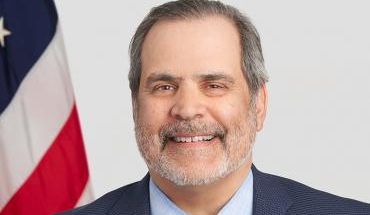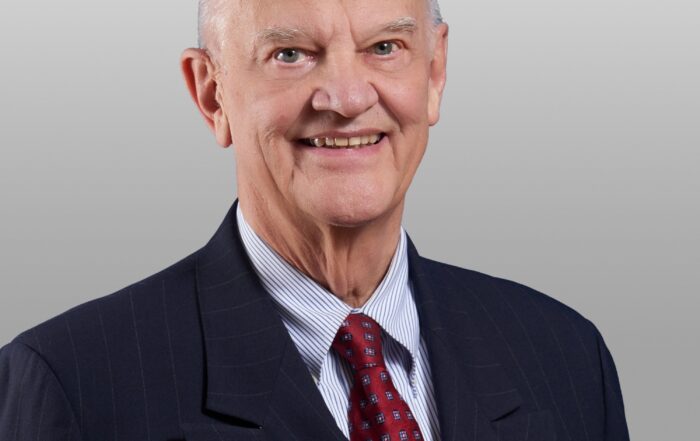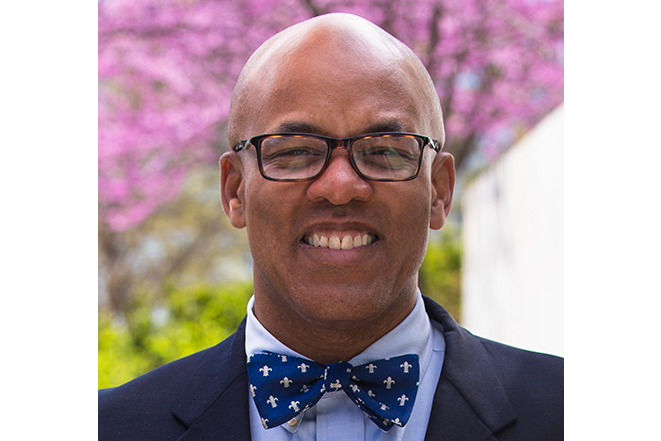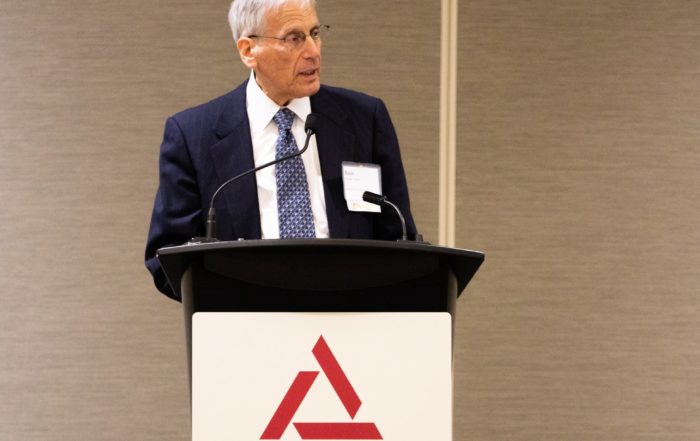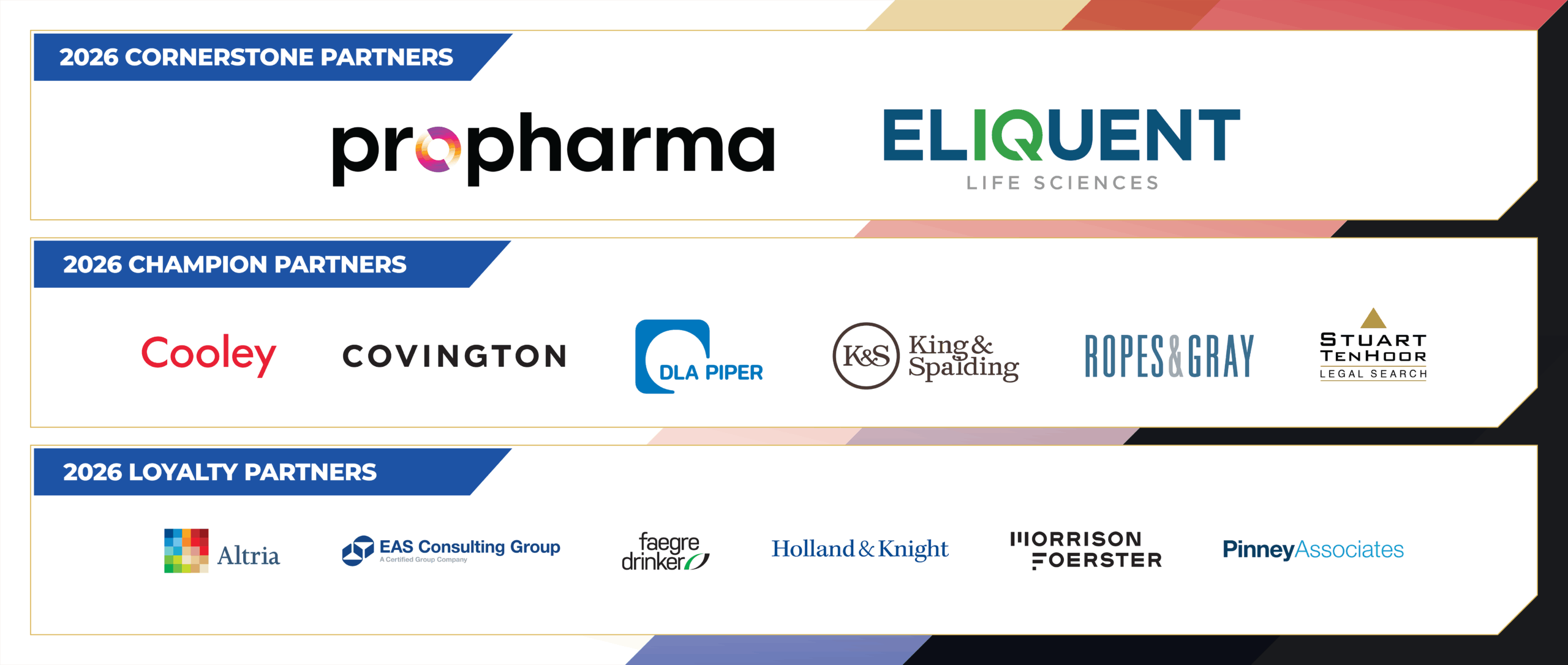Food and Drug Law Institute Eleventh Annual Eric M. Blumberg Memorial Lecture
Partner, DLA Piper LLP and Vice-Chair, FDLI Board of Directors
December 11, 2024

Good afternoon. Thank you to FDLI and the 2024 Enforcement, Litigation and Compliance Conference Planning Committee for inviting me to present the 11th Annual Eric E. Blumberg Memorial Lecture. I am honored to be here today to honor Rick, to reflect on his impact, and to celebrate his legacy. I am also extremely humbled to be included in the group of Blumberg Memorial Lecturers. The past speakers are some of most respected, accomplished, and influential leaders in the Food and Drug Bar. In some ways, receiving the invitation to give this talk is the quintessential full circle moment as some of the past speakers, such as Annamarie Kempic and Liz Dickinson, supervised and taught me early in my career. Others, such as Jennifer Zachary and John Taylor, were my colleagues at FDA and others, such as Mark Brown, were opposing counsel on some of the more challenging enforcement matters I handled during my time at the agency. All of them, like Rick, are important markers in my professional journey and leaders in the FDLI community.
For those of you who did not know Rick, he was the Deputy Chief Counsel for Litigation in FDA’s Office of Chief Counsel (referred to as “OCC”). He held that position for 23 years until his untimely passing in 2013. He worked at FDA for 43 years on a broad array of enforcement and defensive litigation spanning every FDA center and product category. Many of the agency’s enforcement principles and practices are rooted in strategies developed by Rick and perfected by generations of lawyers who honed their talents under his watchful and often critical eye. I was a member of the litigation team at OCC from 2002 to 2008, where I worked with Rick and so many incredible lawyers. Many of the past lecturers have described Rick’s impact on FDA jurisprudence, and I would be remise in not mentioning a few, but I will focus my remarks today on his impact as a mentor and a leader.
Rick left an indelible mark on most people he encountered. He was brilliant and complex. He was direct. There was rarely any doubt about Rick’s thoughts or feelings on any subject. And there was rarely any subject about which he did not have thoughts or feelings. He said what he meant and meant what he said. He cultivated eccentricates that formed his unique brand and identity. His work “uniform” is a perfect example of this. It consisted of a crisp, white button-down shirt, light to medium wash jeans (Levis, I believe), boat shoes, and no socks. He occasionally wore socks in the winter. He wore a nearly identical version of this outfit five days a week. I can count on one hand the number of times I ever saw Rick in a suit. If he was wearing a suit, he was going to court, or to a meeting, which usually meant that either he or someone else was in trouble.
He had deep wells of empathy and kindness, but could be cantankerous and relentless, sometimes to a fault, but always in service of the public health, FDA’s mission, and his team. He had an abiding respect for the law, a belief in the power of prose and a love for an unexpected turn of phrase. “It is beyond cavil, that FDA is entitled to a high degree of deference on reasonable interpretations of the Food, Drug and Cosmetic Act.” He once scribbled this sentence with his red felt-tipped pen that he wielded like a sword or a magician’s wand. As he crossed out the sentences I had written with a deft stroke of the red pen, I remember asking why not just say “it’s beyond doubt.” After several minutes of discourse on the importance of word choice for emphasis and the origins of the phrase, I yielded the point. He also had an almost lyrical ability to combine expletives to form incongruous, but entirely situationally appropriate phrases to express emotions ranging from delight at winning a motion, to exasperation after an intense verbal sparring match on an interpretation of FDA’s regulations, to an ordinary salutation.
When I think about Rick’s life and legacy, which I often do, the novel The Five People You Meet in Heaven by Mitch Albom comes to mind. The book depicts the life and death of a mechanic who maintained the rides at an amusement park. He worked and toiled and sometimes contemplated whether his life and work had meaning. He passed away while attempting to save a little girl’s life in an accident at the park, not fully realizing then the purpose and impact he had. When he gets to heaven, he meets five people who had a significant impact on his life or whose life he impacted. Through a series of flashbacks and conversations, he examines his interactions with each person during his life. He soon learns a critical lesson and the central premise of the book: there are no random events in life, and all individuals and experiences are connected and meaningful in some way.
When I reflect on the evolution of enforcement, litigation, and compliance precedents in food and drug law, Rick is one of the five people who have had the most significant impact. He is a central point of connection to important events and individual experiences that underly the work we do, the issues discussed during this Conference, and many of the compliance frameworks that inform our industry. He is also a force behind some of the key legal norms, such as the Park Doctrine, also known as the “Responsible Corporate Officer” doctrine, which permits the government to seek misdemeanor convictions of responsible corporate officials if they maintain a position of authority to prevent or correct violations. He pushed for legal interpretations of equitable relief to assert the government’s authority to seek restitution and disgorgement of profits gained from violations of the Food, Drug, and Cosmetic Act. He believed in the rule of law, but also believed that the Food, Drug, and Cosmetic Act should be actively and creatively interpreted to achieve the mission and tenants of the statute. He rarely backed down from a fight when he believed the agency had a reasoned and defensible position. He was willing to take risks and push boundaries.
Rick is also one of the five people who has had the greatest impact on my career and the careers of countless others. I am sure there are many people in this room and in the Food and Drug Bar who share this sentiment. He is a central and singular character in many of our lives and stories. On matters of leadership, his influence is ever-present. He was an exceptional leader. Not perfect (who among us is), but exceptional in many ways.
Rick embodied six elements of effective leadership: (1) Security; (2) Belonging; (3) Esteem; (4) Growth; (5) Self-actualization; and (6) Transcendence. These elements, which I saw in an infographic on effective teambuilding, correlate to Maslow’s Hierarchy of Needs, which organizes human needs into five levels, from basic needs for survival to advanced needs for personal fulfilment. In the leadership paradigm, security is the first and most basic need at the bottom rung of the pyramid, and transcendence is at the top.
- Security
Good leaders understand that security is a basic need of everyone in an organization. Whether the organization is a government legal team or a corporate compliance team, strong leaders create an atmosphere where team members feel secure in their roles and the organization’s objectives. They foster a sense of safety by providing clear expectations, a core mission, a clear vision and key values that form building blocks of a strong team culture. Psychological security does not mean the absence of feedback, critiques, or consequences. Rather, it means that team members understand the expectations and have the resources they need to succeed.
Rick understood this innately. A few months into my career at OCC, I was asked to review a Warning Letter issued by a district office. In 2002, I was three years into my legal career, new to government, ignorant of the historical district versus headquarters politics that existed at the time, and fresh from my first legal job as a litigation associate in a big law firm. The assignment was straightforward: ensure that there was sufficient evidence to support the Warning Letter and ensure that the description of the violations was clear and accurate. Simple enough (or so I thought).
In the classic style of an eager junior lawyer, I wanted to go above and beyond what I was asked to do. I wanted to prove myself. I decided to re-write the letter to improve the style, tone, organization, and prose. In short, I did not understand the assignment. I soon found myself on the receiving end of a blistering dressing down from an irate district compliance director, who shall not be named to protect all involved. The verbal tongue lashing was followed by an even more incendiary email expressing his indignation that a junior lawyer with no FDA experience had dared to rewrite a Warning Letter. The email was addressed to what felt like every senior leader at FDA up to and including the Commissioner, and several others were copied for good measure. My re-written letter, replete with redlines and tracked changes over nearly every word, was attached to the email as evidence of OCC’s overreaching, and, in his opinion, my general incompetence.
Annamarie Kempic came to my office. She was often the measured, clear-eyed translator and intermediary between Rick and the object of his ire. In this case, she explained that I did not understand the assignment. Put another way, I forgot to ask for important context, history, facts, and cultural norms that should have informed my approach to the assignment. She explained the importance of asking the all-important question: Is there anything else I should know about the parties involved or facts here before I begin? She then said, not to worry, because Rick had taken care of it and that I should expect a call from said district compliance director. The district compliance director called shortly thereafter and apologized profusely for screaming at me. He explained the reason for his frustration was more about organizational dynamics and process and less about my edits.
To this day, I do not know exactly what Rick said or what he did, but at that moment I felt secure. The lesson here was about the importance of cultivating security, psychological safety, and trust in your team. That does not mean that you don’t give constructive or even critical feedback when needed, but you advocate for and support them when necessary and appropriate. This is critically important in organizations where creating a framework for good compliance practices means creating a culture where employees feel secure enough to raise concerns, elevate issues, and “speak up.”
- Belonging
Effective leaders foster a sense of community. They understand that as humans, we need each other. Rick fostered a deep sense of community, belonging, and connection in OCC that transcends the organization. He pursued the creation of community for our team with the same vigor and intensity as he searched for solutions to the most complex legal problems. He meticulously and zealously planned and fretted over the office’s annual “Lox Lark,” a celebration, in which an elaborate platter of Lox, bagels, and assorted trimmings were the featured menu item. Jim Smith, Senior Counsel, in OCC was gracious enough to send me a copy of a 1997 invitation to the Lox Lark that hangs in the breakroom at OCC to this day. I won’t read all of it, but I will read enough that you understand the humor, intensity, and irreverence with which Rick approached all things. It begins: “It is again time to unloosen the shackles of self-restraint and make serious inroads on the limits of temperance while breaking bagel with your estranged stable mates . . . . Here is another opportunity to see who can complain most shrilly about misguided management, and the countless other misfortunes that beset us at every turn. Throughout the year we have each, sometimes more, sometimes less discretely, made individual contributions to this litany of grievances; here is your chance to whine chorally (as a team, if you will) to a captive audience. Or, if whining is not your forte (you’re probably not in OCC), you can engage in that other time-honored OCC pastime, criticizing the whiners.” It states the location as: “Bill McConagha’s office otherwise known as the front conference room.”
For the annual office holiday party, there were endless emails and sign-up sheets, and planning matrixes all managed with the precision of military troop movements. Jessica Zeller, a former OCC colleague, recalled drawing Rick’s disapproval over her work on the planning committee for the office holiday party because the committee failed to personally invite Rick to bring his treasured brisket. Rick was so deeply offended by the brisket snub that allegedly, he politely invited Peter Beckerman, who is now Principal Deputy Chief Counsel at OCC, to write a memo on basic etiquette for holiday party planning, which included that Rick must be personally invited to bring brisket. We believe a version of that memo may be in circulation but have not confirmed this. By the time the party came around, most of us were exhausted by the process, but thoroughly enjoyed the time with our colleagues and the memories and community we created.
- Esteem
Good leaders recognize and celebrate the contributions of their colleagues and team members. Fundamentally, people need to feel valued, appreciated, and respected for their work. Rick excelled at acknowledging big and small wins. He delighted in orchestrating the office tradition of providing “awards” known as “hats off” to the team for work-related accomplishments. Whether it was a successful enforcement action or a precedent-setting legal argument, team members were celebrated. The “hats off” included items like a stuffed alligator, a handheld basketball game from the 1980s that was reportedly Jerry Masoudi’s pride and joy, and a cup from the french-fry place on the boardwalk, which was the “These Fries Taste Great” award. There were others, mostly of the White Elephant variety, which held such meaning and importance to the team. These items were passed from one recipient to the next, who had the honor of keeping it in their office until it was time to hand it off. The awards themselves belied the seriousness and thought with which Rick, and later Annamarie, crafted the emails to the team. Each email recounted in detail the complexity of the case, the intractability of opposing counsel, the novelty of the legal interpretations, etc. Each one thoughtfully celebrated and acknowledged the team member’s contribution, with a dose of humor and a hint of irreverence. Many of us remember the first award we received and how we felt receiving it.
- Growth
Effective leaders invest in the professional and personal development of their team members. They look for opportunities to encourage professional growth. They train. They mentor. They give us room to stretch. They give honest assessments of how and where we need to improve. They are invested in making us better. Rick challenged his team to take on the difficult cases. As Jennifer Zachary noted in her speech, “Rick taught his lawyers to seize opportunities even when—and perhaps especially when—you were not sure you were ready.” Some cases I was assigned involved the defense of critical agency programs and positions, including FDA’s authority to regulate commercial speech under the First Amendment. Others involved novel “firsts” such as the first consent decree enforcing the BSE Animal Feed Rule, the infamous baby turtle trafficking case, which challenged a decades-old FDA rule prohibiting the interstate sale of baby turtles under four inches because of associated salmonella concerns. That case involved extensive briefing and a hearing before a federal district judge in Louisiana. In any and every instance where I questioned the wisdom of pursuing certain enforcement actions or the use of government resources to defend certain challenges to FDA’s authority, Rick would respond, “would you feel differently if the life or health of someone you loved or cared about was adversely affected by the issues in this case and the decisions we make?” I would respond, “yes.” And he would say, “Good. Then figure it out. And don’t screw it up.” But not exactly in those words.
- Self-Actualization
Strong leaders create opportunities for team members to reach their highest potential by finding purpose and meaning in the work. For Rick, patients, consumers, people living with health conditions, and the broader public health were at the heart of the work. Public health was central to every decision. He never lost sight of that and never allowed the team to do so. Questions about the scope of FDA’s authority, the appropriate level of deference to agency decisions, are worthy and legitimate topics for legal discourse. In the instances where the agency gets it wrong, these issues are a worthy and legitimate basis to challenge agency actions. But, the rights, needs, and interests of consumers and patients should be a factor, and in many cases a primary factor, in decisions around advocacy, compliance, and enforcement.
- Transcendence
Exceptional leaders create more leaders. Transcendence occurs when leaders empower and inspire others to lead and to lead others. Rick was a transcendent leader. His legacy and influence are reflected in the words, memories, accomplishments, and impact of so many of the leaders in the FDLI community and Food and Drug Bar. For many of us, he is a North Star, a sightline, and a yardstick with which we measure ourselves, check our assumptions and motivations, and gauge the impact of our work.
I am grateful to have known him and even more grateful that FDLI continues to honor and recognize his leadership, his impact, and his deep and meaningful connections to this community. Thank you.

